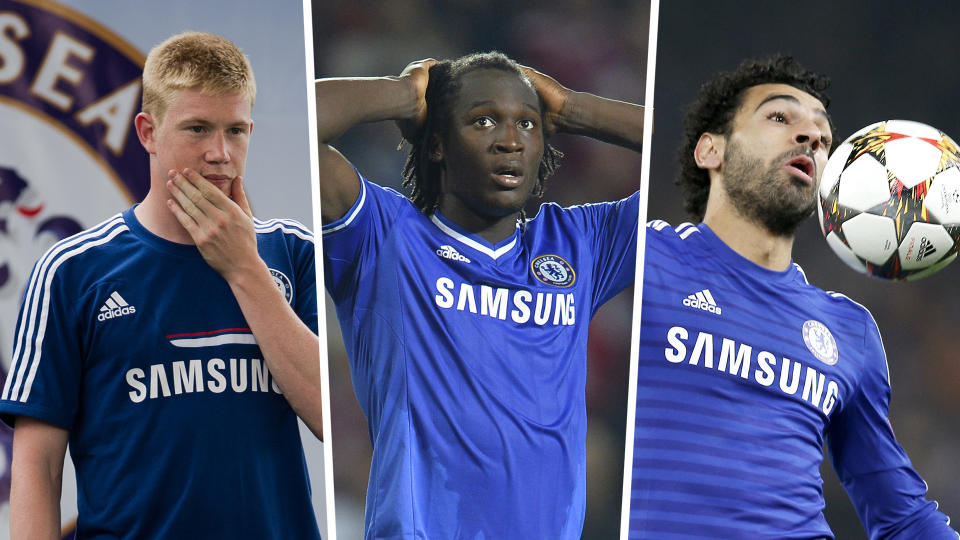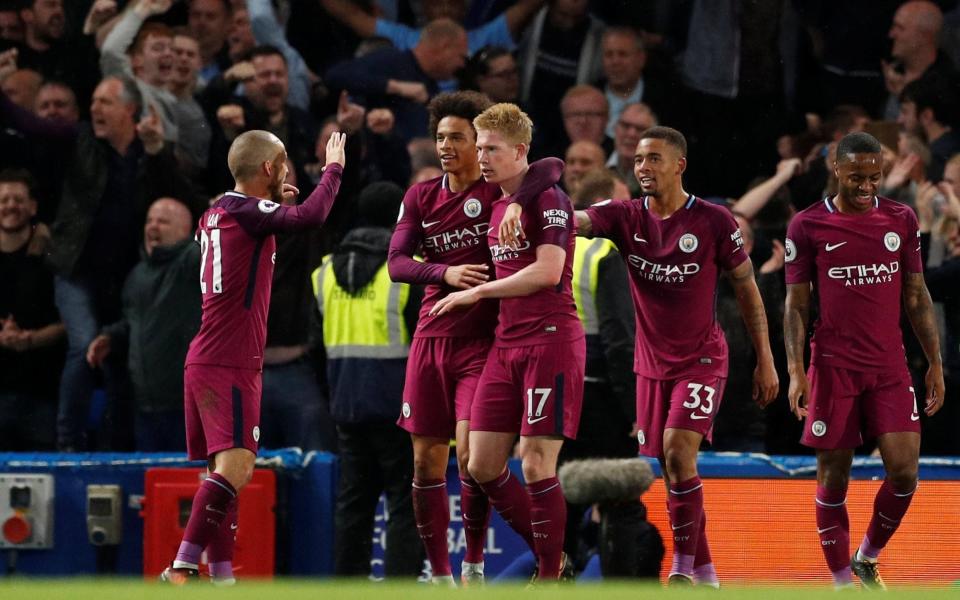Chelsea's biggest problem is they have stopped signing the new De Bruynes

Chelsea may be wearily familiar with the numbers. Two Premier League starts. Just 132 minutes of top-flight football. No goals. An £18 million fee which seemed generous when he was sold, but does not anymore.
Kevin de Bruyne has one winner against Chelsea to his name already this season. He could show them what they are missing again on Sunday. He is not the one who got away as much as the best of many to escape their grasp.
Whatever De Bruyne does in Manchester City’s colours, the greater embarrassment for Chelsea may come in the end-of-season awards. The Belgian may sweep the board.
READ MORE: Arsenal new boys back under-fire manager Arsene Wenger
READ MORE: Gary Neville exclusive: Why Wenger will leave Arsenal this summer
Mohamed Salah might be runner up, possibly picking up the Golden Boot as a consolation prize. At least that won’t go to Romelu Lukaku, as seemed very possible during his brilliant start to the season.
Yet if Chelsea have ample time to repent past sales, to lament Jose Mourinho’s reluctance to select emerging talent at a club where impatience has been ingrained at first-team level and, in the Portuguese’s defence, to wonder if anyone else realised at the time just how good De Bruyne and Salah would become, Sunday should shine a light on their problems.
Past mistakes have been highlighted. Past excellence has perhaps not received the recognition it merited. Because this season – whether with the brilliance of De Bruyne, Salah’s scoring feats or the emergence of Andreas Christensen – shows that there was a golden age of recruitment at Stamford Bridge.
Between June 2011 and January 2014, Chelsea brought in Thibaut Courtois, Romelu Lukaku, De Bruyne, Eden Hazard, Oscar, Cesar Azpilicueta, Christensen and Salah, each before his 23rd birthday, and Juan Mata three months after his.
READ MORE: Pochettino – Next season ‘too soon’ for VAR in Premier League
READ MORE: Gossip – Arsene Wenger ‘facing Arsenal mutiny’, and more
Nor did the astute business end there. Other fine buys arrived further into their career; Gary Cahill, Nemanja Matic and Willian, to name but three. Nearly all came in Michael Emenalo’s time as technical director, which should offer a neat rebuttal to the traditionalist notion that managers need complete control in the transfer market.
As a club, Chelsea constructed what could have been runaway league leaders now; perhaps even England’s team of the decade.
Instead, they have a side that, despite Willian’s recent flurry of goals, looks over-reliant on Hazard and a team that, despite winning the title last season, feels less talented than either of the Manchester clubs’ sides and less potent than Liverpool.
It is, of course, a problem, that they sold De Bruyne and co. It is another that they have stopped making De Bruyne- and Hazard-style signings. There is no conveyor belt of class to offer optimism for the next few years. They no longer import the best of the next generation.

Look at the brightest attacking talents the top-six clubs have picked up at formative ages in recent years – Gabriel Jesus, Raheem Sterling, Leroy Sane, Dele Alli, Anthony Martial – and none plies his trade at Stamford Bridge. Liverpool’s feared front three of Salah, Sadio Mane and Roberto Firmino came at 25, 24 and 23; slightly older, but still yet to reach their probable peaks.
Chelsea still try and sign players in the first half of their careers, searching for resale value – a policy that paid off most profitably with Oscar, a footballer who flattered to deceive nonetheless producing a huge windfall – but quick fixes, compromises and missing out on targets have changed the situation.
The 27-year-old Danny Drinkwater is not the next De Bruyne, the 31-year-old Olivier Giroud not the next Lukaku. Nor, even, is the younger Ross Barkley the new Hazard.
Perhaps Chelsea exploited a gap in the market a few years ago and the nature of any business is that a successful policy will be copied by rivals. Chelsea also benefited from more pulling power; Hazard plumped for them ahead of the Manchester clubs, not least because they had just won the Champions League.
The other issue is that prices have gone up and clubs are paying way over the odds for potential in a way they did not in 2011 and 2012; just look at the fees Kylian Mbappe and Ousmane Dembele commanded last summer.
Even accounting for inflation, Chelsea had to pay far more for Antonio Rudiger and Tiemoue Bakayoko, players whose careers ought to be on an upward curve, than they did for De Bruyne and Salah, and a defender and a defensive midfielder scarcely fell into the category of potential match-winners.
It is also the case that no club continues to sign superbly forever. They need to capitalise when they do. Chelsea can look now and see that Lukaku is more potent that Alvaro Morata, and could have been Didier Drogba’s long-term successor, let alone Diego Costa’s, Salah is more devastating than Pedro and De Bruyne a player of such varied attributes that no one in Antonio Conte’s current squad remotely resembles him. Finding footballers of his standard may be beyond their budget.
Because Chelsea paid just over £100 million to sign those eight younger players whose combined value may now exceed £500 million and who, in the cases of De Bruyne, Hazard and their weekend tormentor Lukaku, are now flourishing for others. Chelsea bought brilliantly for the future. Now the danger is that future seems to belong to others.

 Yahoo Sport
Yahoo Sport 






































